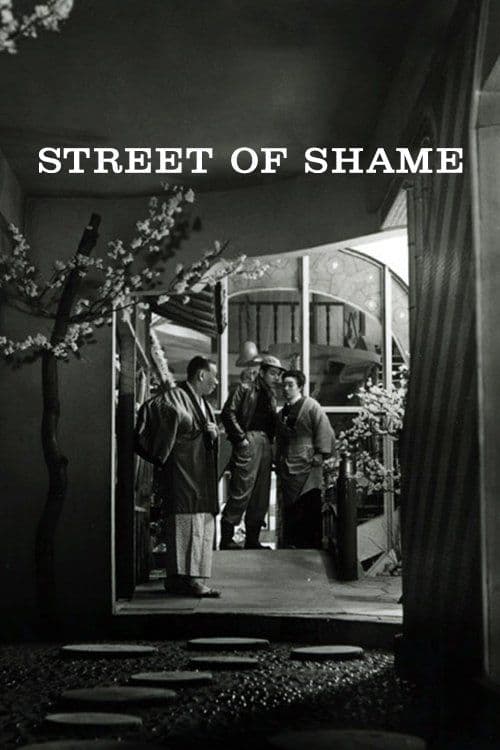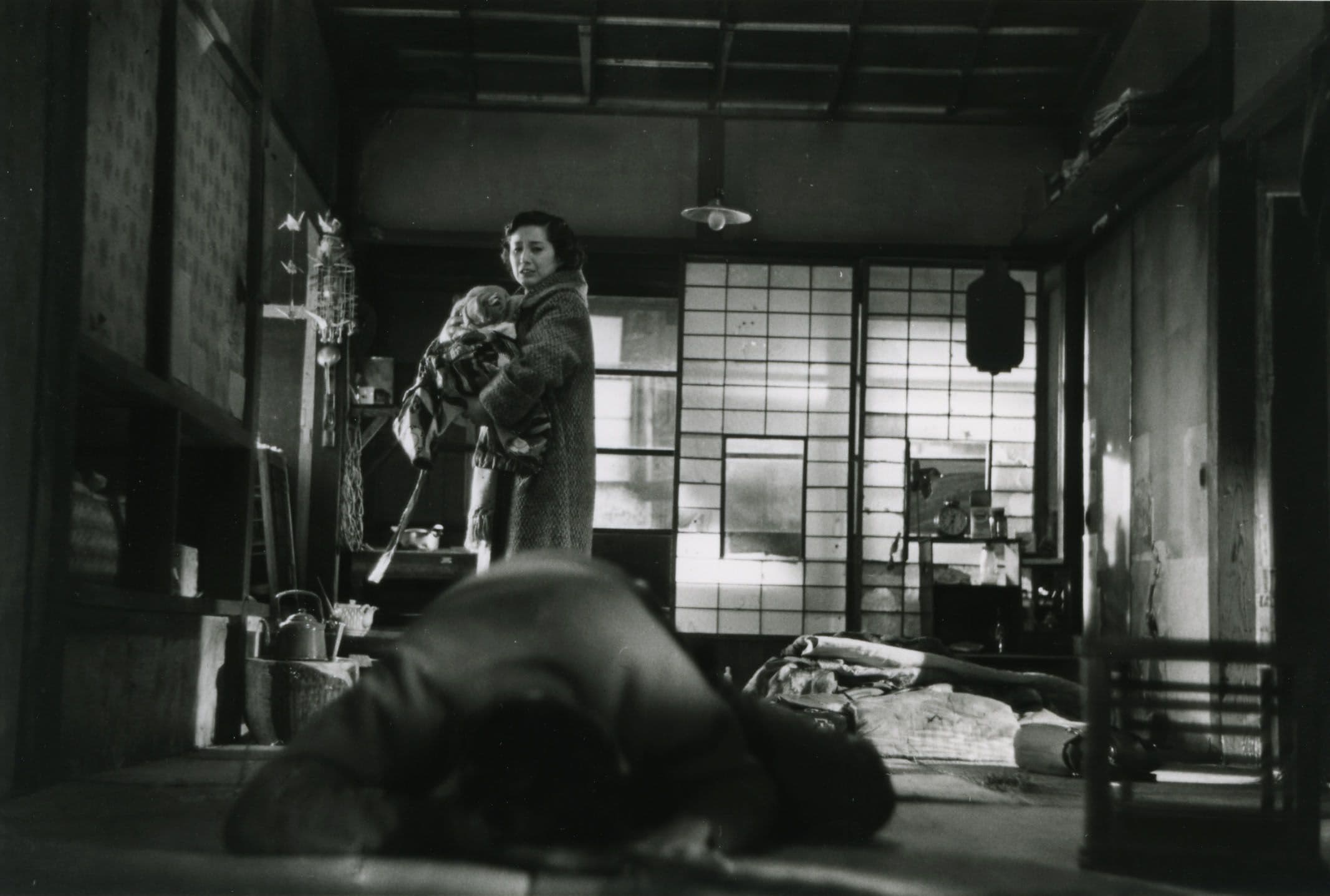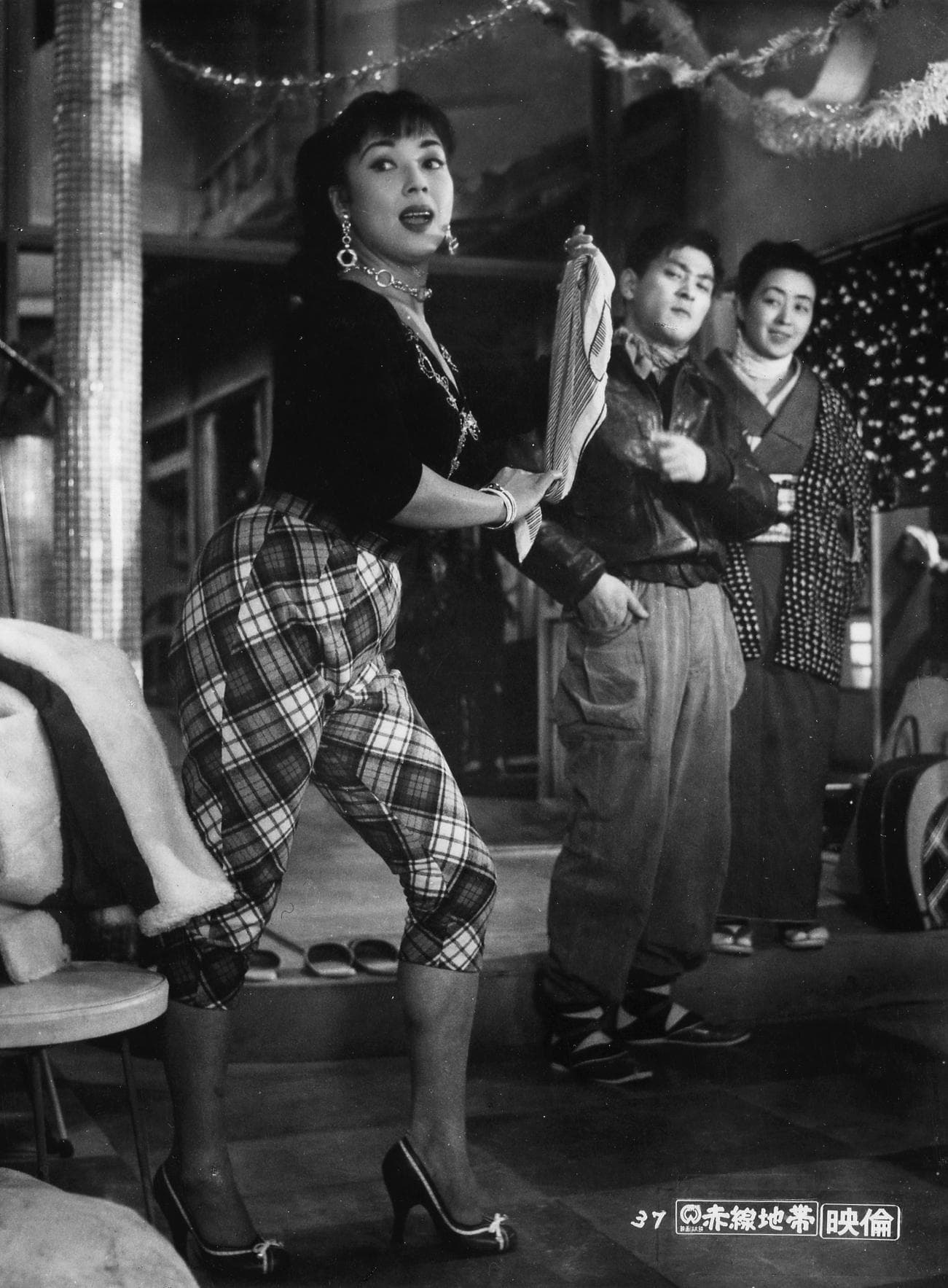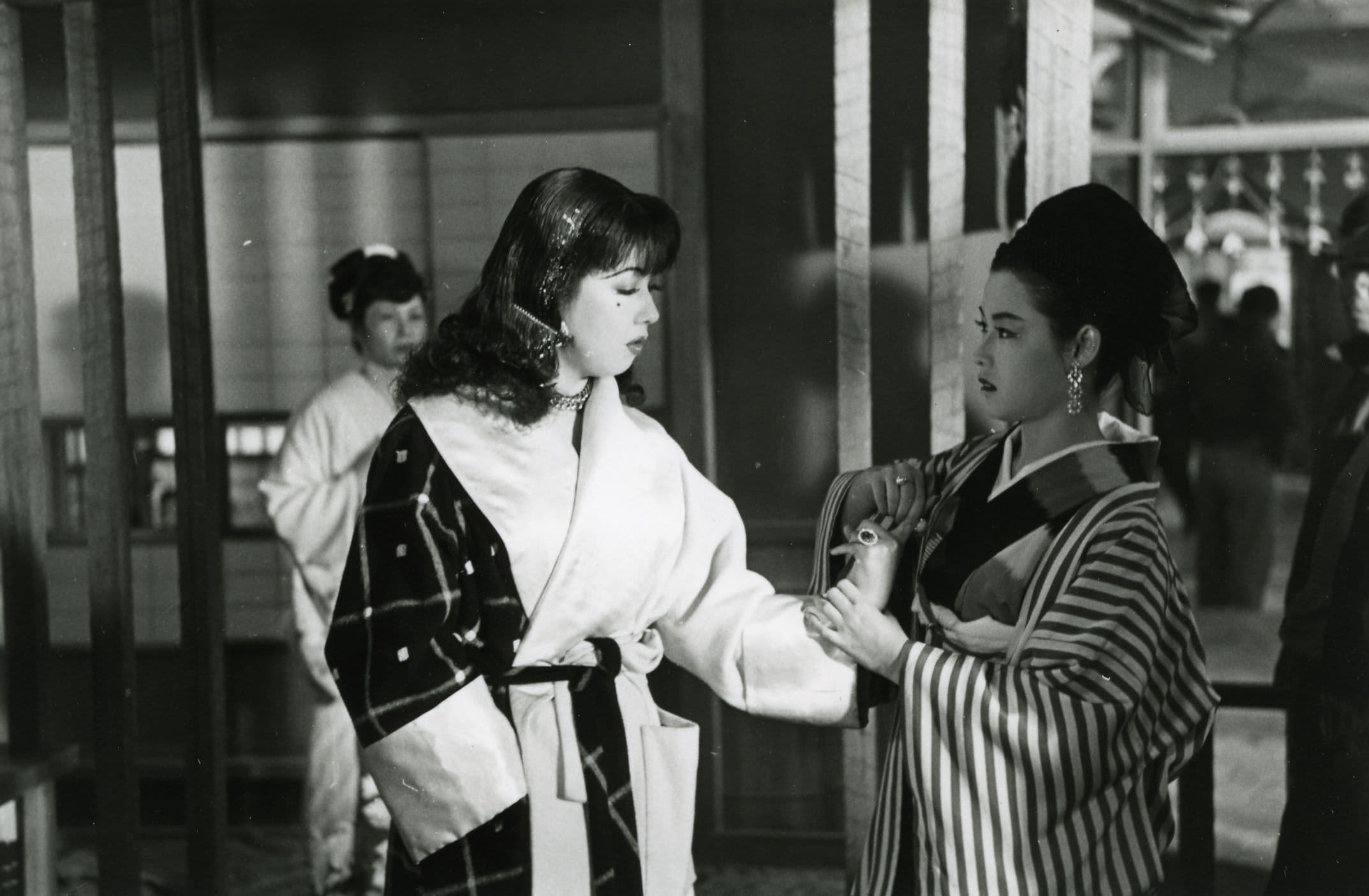
Street of Shame
1956
Rate this movie
Average: 0.00 / 5
(0 votes)
Director
Mizoguchi's last film is, in some ways, an epitaph to his Aesthetic, not only because it is his final work, but because in it, the themes and style that punctuated the Maestro's entire, brilliant career crystallize and sublimate. It is not a mournful farewell, but rather an artistic testament of rare power, in which his worldview and his unparalleled cinematic mastery reach a final, moving peak.
Never self-indulgent in the refined composition of his images – which are, nonetheless, of a dazzling, almost painterly beauty, but always at the service of truth – Mizoguchi constantly reveals himself to be concerned with documenting human drama and embodying it through creatures of flesh and blood, beings equally fragile and resilient. Here, his sensibility ignites in plumbing the semantic gap of street drama, that which unfolds in the alleys and brothels of a Japan poised between tradition and modernity. He does so without unnecessary aestheticizing frills, without moral implications that would sound like judgments, and above all, without those redundant prejudices that often cloud one's view of certain social realities. His camera settles on events with the respectful distance of an entomologist, but with the profound empathy of a poet, observing without judging, revealing without sensationalizing. This is an approach that clearly distinguishes him, lending the film an almost documentary dimension in its disarming authenticity, while elevating it to a universal narration of the female condition.
The film tells the stories of five prostitutes employed in a Yoshiwara brothel, Tokyo's red-light district, precisely while the debate on the anti-prostitution law raged in Japan in 1956, the year of the film's release. This timeliness makes the work a keen and urgent socio-political commentary, far more than a mere period portrait. Mizoguchi, with his unparalleled ability to intercept the drifts and hopes of a rapidly transforming nation, captures the paradox of forced emancipation, of a freedom that, far from being a choice, presents itself as an additional layer of uncertainty and precariousness for women already on the margins.
Each of the women, with her individuality forged by the harshness of the trade, carries her heavy burden of painful memories, of mistakes made out of desperation or naiveté, of silent defeats accumulated day after day. There is Mickey, the restless dreamer who tries to escape her reality with an almost childlike innocence; the pragmatic Yumeko, forced to return to street life to support her son and sick husband, an embodiment of motherhood sacrificed on the altar of survival; the elderly and disillusioned Madame, a witness to a disappearing era; the young Yasumi, who tries to exploit her beauty to climb socially; and the enigmatic Hanae, silent and seemingly resigned. Each harbors, deep down, a faint but tenacious hope of redemption, of freedom from a life of sexual slavery, be it economic, social, or moral. Their microcosm, "Dreamland," as the brothel is ironically called, becomes a stage of shattered desires and tenacious illusions, an earthly purgatory where dignity is a precious and often unattainable commodity. Mizoguchi does not show them as passive victims, but as complex individuals, capable of cunning, solidarity, and, at times, ruthlessness, fighting for a glimmer of autonomy in a world that has relegated them to the margins.
Only one of them will apparently succeed in freeing herself, but to do so she will have to become part of the systemic deception that overwhelms her, assuming a mask of cynicism that allows her to navigate the murky waters of society, but which, perhaps, precludes her from true, authentic inner freedom. It is a bitter, conditional liberation, underlying a gloomy comment on the illusory nature of a redemption that cannot do without a corruption of the spirit. This ambiguous, almost nihilistic resolution is emblematic of Mizoguchi's cinema, always careful not to offer easy consolations or edifying morals, preferring to investigate the gray nuances of the human condition.
The cinematography, handled by his trusted collaborator Kazuo Miyagawa, is simply splendid, with its ability to capture the suffocating and melancholic atmosphere of "Dreamland" through long, fluid shots, which allow the viewer to immerse themselves seamlessly into the drama without resorting to sudden cuts or insistent close-ups. The camera's positioning, often at a distance, seems to suggest a form of respect for the women's intimacy, or perhaps the presence of an ineluctable fate observing them from afar. Even more captivating is the narrative, devoid of any stylistic baroque elements. Mizoguchi, faithful to his stylistic hallmark that favors clarity and formal elegance, avoids all superfluous ornamentation, focusing on the intrinsic emotional power of the stories and the subtle and moving acting of the actresses. There is no excessive dramatization, but a restrained and profound emotional resonance that permeates every scene, allowing pain and hope to manifest through glances, silences, and minimal gestures. It is a cinema that breathes, that observes, that allows time to expand on the scene, revealing the most intimate nuances of the characters' souls.
A great film by an unforgettable Maestro, whose work remains a beacon for understanding not only the history of Japanese cinema but also the perennial struggle of women for dignity and autonomy in adverse social contexts. His is a way of filmmaking that has gradually been lost in the sands of time, sacrificed on the altar of more frantic and often more superficial aesthetics, but which still fascinates and moves today, demonstrating that formal elegance and thematic depth can merge into an immortal art. "Street of Shame" is not just a film, but a fragment of history and an echo of the voice of those who never stopped fighting, a melancholy siren song that resonates far beyond the walls of Yoshiwara, still questioning our very perception of freedom and justice.
Genres
Country
Gallery




Featured Videos
Official Trailer
Comments
Loading comments...